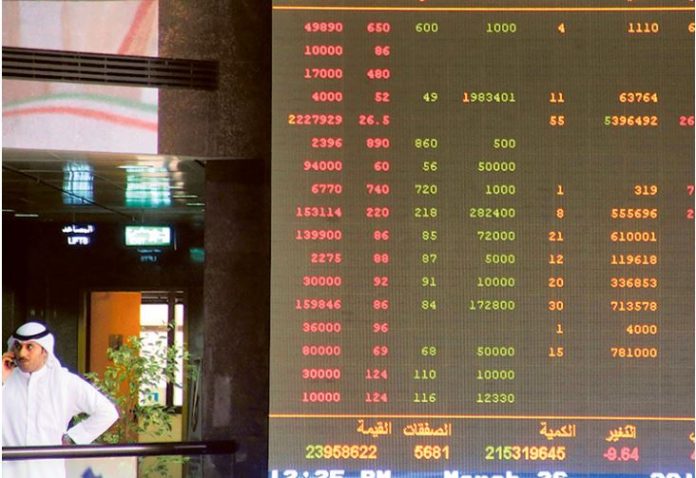It was a turmoil set off by a chance remark on banks’ dividend plans this year
Kuwaiti investors didn’t warm up to the idea of banks not issuing any dividends this year. Stocks crashed and the regulator had to intervene. But sentiments are still frayed.
Kuwait City: The timing wasn’t ideal.
While Kuwait’s central bank governor was in a forum Wednesday with lawmakers and executives discussing plans to boost the economy, shares in the Gulf state’s lenders were tumbling as investors reacted to some unexpected news.
The Kuwait Banking Association announced during the bourse’s trading session that its members would pay no cash dividends for 2020. National Bank of Kuwait SAK fell the most in seven weeks, joining declines across the sector.
Turnover jumped to the highest since March. Traders were still assessing a dramatic day when Al-Jarida newspaper tweeted that banks were seeking an urgent meeting with their association, suggesting a breakdown in communication.
Dial back the damage
The country’s Capital Markets Authority stepped in on Thursday, saying the industry group wasn’t qualified to make the announcement on shareholder payouts. The regulator canceled all of Wednesday’s trades on the exchange. Banks issued statements saying there had been no decision on dividends.
The mayhem unfolded at a moment when there is more attention than usual on the market. Kuwait is expected to join MSCI Inc.’s widely followed emerging-markets equity index in November, a promotion that was delayed from May due to challenges thrown up by the coronavirus pandemic.
Downright blunder
“It’s not a good time to be making a blunder of this magnitude in light of recent and further index inclusion for Kuwait’s stock market,” said Ali Al Salim, co-founder of Arkan Partners, a consulting company for alternative investments including hedge funds and private equity. Canceling Wednesday’s trades “is both unprecedented and achieves little.”
The decision on dividends is one that must ultimately be taken by the banks and approved by shareholders, he said.
The move failed to spare banking stocks from dropping again on Thursday, with price changes calculated from Tuesday’s close. Lenders including National Bank of Kuwait, Kuwait Finance House KSCP and Gulf Bank KSCP lost between 1.9-7 per cent, dragging the main local index down 1.9 per cent, the most in the Gulf. The market is the region’s worst performer this year, after Dubai.
Not easy to erase
While some neighbors have moved swiftly to amend labor and commercial rental laws in response to the coronavirus pandemic, Kuwait has yet to do so. All legislative changes require approval in parliament, which hasn’t held a session in nearly three months.
Kuwait’s budget shortfall is expected to reach 40 per cent of gross domestic product in the fiscal year that started April 1, the most since the 1991 Gulf War and its aftermath, according to National Bank of Kuwait calculations. That compares to a gap of between 15-25 per cent for most Gulf countries.
Meanwhile, the authorities’ response to the stock market tumult may end up doing more harm than good.
The CMA’s decision to cancel all the trades “is a grave mistake and will hurt the stock exchange’s reputation,” lawmaker Bader Al Mulla said on Twitter.




